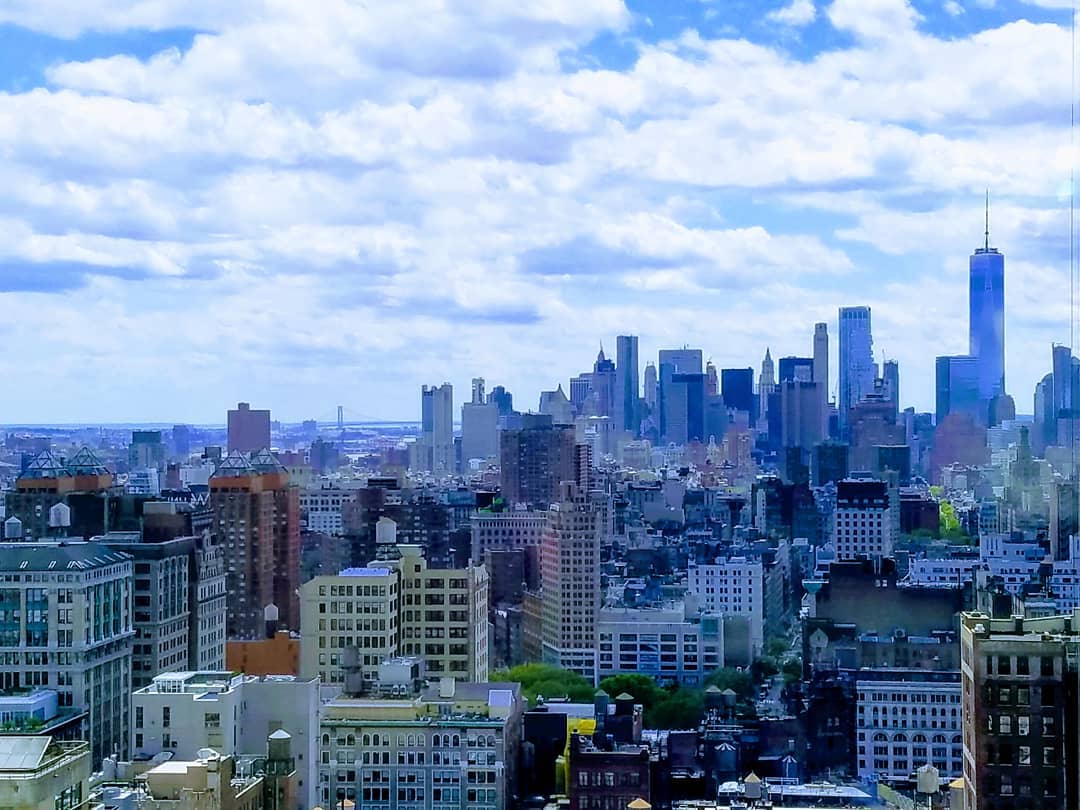A college student had a brief burst of fame last summer for graduating from U.C. Berkeley while living in Los Angeles and using miles to commute to school to save money.
Leveraging miles and points for your commute turns out to be a tool for the professional classes, too as one Wall Street Journal reporter uses his points to live in cheaper Ohio and commute to New York.
Chip Cutter started living in Ohio during the pandemic and didn’t want to return to sky high New York rents. He continued to travel and back forth from Columbus, staying in the city three days a week. And it isn’t just rents. Those New York City apartments that a journalist can afford are pretty small and often run down.
The goal? If he was spending $3,200 a month in New York, then keep his Columbus rent plus travel below that. The supercommuting writer would take early morning flights to compress the number of hotel nights he needed (and increase availability of lower-cost award tickets). He started staying at the Beekman Hotel in New York, a Thompson property so part of Hyatt. He was burning too many points. So he shifted out towards JFK airport.
Entering my supercommuter era, I had visions of flying to New York on a weekday morning (8,500 points one way on American Airlines), spending the day meeting sources and filing stories, and retiring to one of my favorite points hotels—the Beekman. Mornings would begin with a free breakfast thanks to my Hyatt status, before a short subway ride to the office. After two nights, I’d return to Columbus and my roomy apartment, half the price of a Manhattan studio.

Other challenges:
- what you tell people about where you live
- eating, without a kitchen
- traveling with a limited wardrobe (if you’re a supercommuter, the last thing you want to do is check a bag)

This is all great at slower times, but as New York City hotel prices have risen and points balances have depleted it’s hard to sustain. The city, in concert with unions, have stood in the way of new hotel projects that would increase supply (and, ironically, create more jobs) while the lowest end of supply has increasingly been taken up by migrants.
I have to wonder whether he’d find the strategy more viable over the long run if he hadn’t focused as much in the past on Delta SkyMiles (where he reports having done a straight-turn to Anchorage to maintain his Diamond status). On the other hand, Delta is generally more lucrative with bump compensation during overbooking for giving up your seat.
However he saw the light and “kept [his] elite status with Hyatt and American.”


Show me the receipts, then I believe it. Otherwise it is just another piece of WSJ propaganda.
How little is the Wall Street Journal paying these days?
And, for a double whammy, when the points were gone, NYC conveniently knocked most of the AirBnB inventory out of the system with a law change that was pushed by the big hotels. New York City is no longer affordable for anyone.
Print/type journalism pay has been facing headwinds as more and more of the work of copy writers and editors has been shifted to low cost countries that were formerly part of the British empire.
Media content work has rather commonly not been financially lucrative except for major headline journalists and a segment of TV show presenters.
This is basically what air crew do each week except I paid $225/month for my crashpad within walking distance to JFK. The one walking distance to LGA was $350 but nicer.
It came with a car to use as well
Not everyone is suppose to live in the city, move to Queens if you want the country.